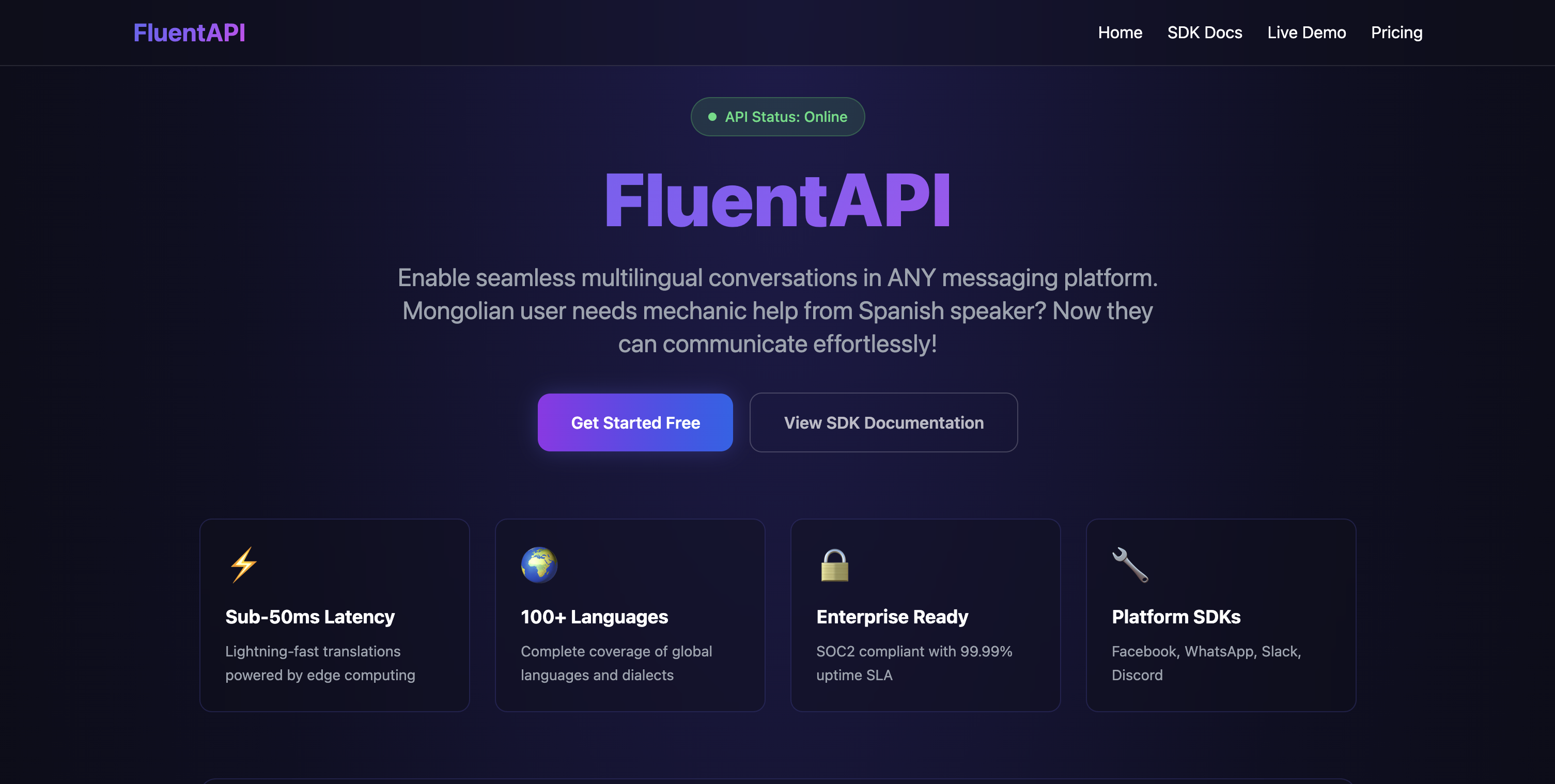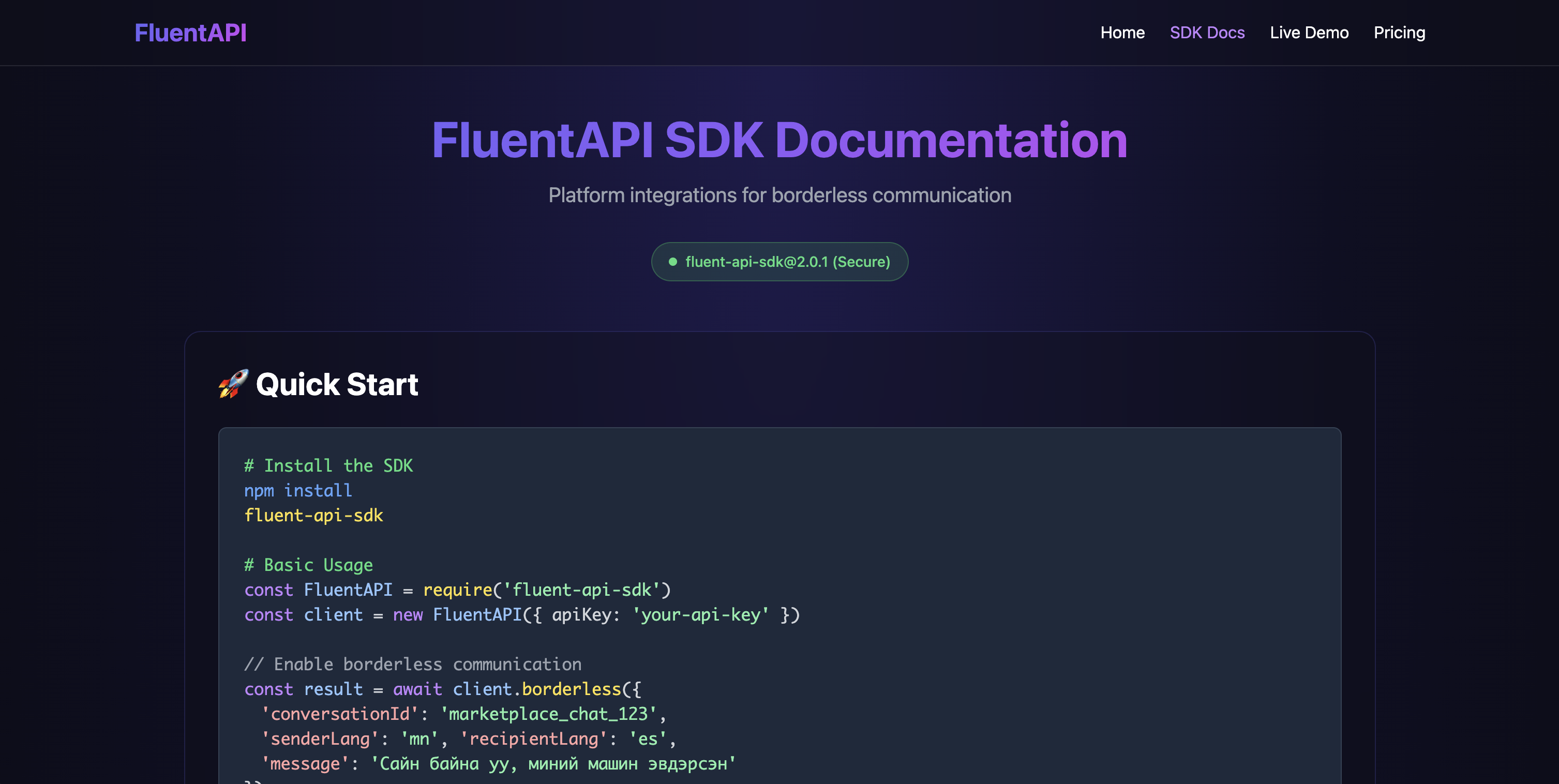Introduction
As technology relentlessly advances, the landscape of work is undergoing a profound transformation. Automation, once a distant concept, is now an undeniable reality, reshaping industries and redefining job roles. While automation promises increased efficiency and productivity, it also presents significant challenges, particularly for the labor market. This blog post delves into the multifaceted impact of automation on jobs, explores the personal struggles faced by individuals in this evolving environment, and introduces FluentAPI – a novel solution designed to bridge communication gaps and empower workers in the new economy.
The Shifting Sands of the Labor Market: Automation’s Double-Edged Sword
The rise of automation, driven by advancements in artificial intelligence (AI) and robotics, has sparked considerable debate about its effects on employment. On one hand, automation is hailed as a catalyst for economic growth, leading to increased productivity, reduced costs, and the creation of new industries and job categories. Tasks that are repetitive, dangerous, or require high precision are increasingly being handled by machines, freeing human workers for more complex, creative, and interpersonal roles.
However, the rapid pace of automation also brings significant disruption. Many traditional jobs, particularly those involving routine or manual tasks, are susceptible to displacement. Reports from institutions like Goldman Sachs and the World Economic Forum estimate that millions of jobs worldwide could be exposed to automation in the coming years [1, 2]. This displacement is not merely a theoretical concern; it has tangible consequences for individuals and communities. Workers, especially those in sectors heavily impacted by automation, may face the daunting challenge of re-skilling or finding entirely new career paths. This can be particularly challenging for individuals who may lack access to educational resources, or who face language barriers in new job markets.
Beyond job displacement, automation can also influence wage negotiations and income inequality. Some research suggests that the threat of automation can weaken workers’ bargaining power, potentially dampening wage adjustments [3]. While automation can lead to overall economic gains, the benefits are not always evenly distributed, potentially exacerbating existing disparities.
It is crucial to recognize that the impact of automation is not uniform across all industries or demographics. Data-rich industries, for instance, are often more prone to disruption by AI, while others may be scrambling to digitize to reap the benefits of automation [4]. The narrative is complex, with some studies even suggesting that AI use at work can increase job satisfaction by freeing workers from mundane tasks [5]. Nevertheless, the overarching trend points to a significant restructuring of the global labor market, necessitating proactive measures to support workers through this transition.
A Personal Struggle: The Human Face of Automation’s Impact
The abstract discussions about job displacement and economic shifts often overlook the deeply personal impact of these changes. I recently witnessed this firsthand through a close friend’s struggle. Despite possessing advanced degrees and a strong work ethic, he found himself increasingly marginalized in a labor market that was rapidly automating tasks he once performed. Even seemingly simple jobs like ride-sharing, delivery, and shopping, which once offered a lifeline to many, are becoming less accessible due to technological advancements.
His situation was compounded by a common challenge faced by many talented individuals from diverse backgrounds: a language barrier. While proficient in his native tongue, his English fluency was not sufficient for roles requiring constant, nuanced communication. This put him at a significant disadvantage, making it incredibly difficult to secure stable employment and provide for his family. His story is not unique; countless individuals, some with impressive qualifications from their home countries, face similar hurdles when navigating new linguistic and cultural landscapes.
This personal experience spurred me to action. I began to brainstorm ways to leverage technology to create new opportunities, particularly in service-oriented sectors. The idea was to develop a slightly different kind of ride-sharing experience, one that my friend could offer as a valuable service. The initial architectural phase, focusing on workflows and user experiences, took a month of dedicated effort. I meticulously designed a system that would connect service providers with clients, ensuring a seamless and efficient interaction.
However, as the project neared completion, I encountered a critical roadblock: the very communication barrier I was trying to circumvent. The service I envisioned inherently required clear and effective communication between the service provider (my friend) and the client. His limited English proficiency threatened to undermine the entire endeavor. This was a problem that needed an immediate and innovative solution if the project was to move forward.

FluentAPI: Bridging the Communication Gap in the New Economy
The challenge of seamless communication in a multilingual service environment became the central focus of my efforts. I realized that for my friend’s service to be viable, and for countless others facing similar linguistic hurdles, there needed to be a way for service providers and clients to communicate effortlessly, regardless of their native languages. The solution that emerged from this necessity is FluentAPI.
FluentAPI is an innovative API designed to provide flawless, instant translation services that can be easily integrated into any existing platform. The core idea is simple yet powerful: users on both sides of a communication exchange can write in their native languages, and FluentAPI handles the real-time translation, creating an experience so smooth it feels as if they are conversing directly in the same language. This eliminates the need for service providers to be fluent in the client’s language, and vice-versa, opening up a world of opportunities for skilled individuals who might otherwise be excluded from certain service industries due to language barriers.

I quickly realized that this solution had far broader implications than just my friend’s ride-sharing service. Many developers and businesses are grappling with similar communication challenges in an increasingly globalized world. Whether it’s for customer support, e-commerce, collaborative platforms, or indeed, other service-oriented applications, the need for seamless, real-time multilingual communication is paramount. FluentAPI was born out of this recognition, offering a robust and easy-to-integrate solution for anyone looking to break down language barriers and foster more inclusive and efficient interactions.
By providing a reliable and accessible translation layer, FluentAPI empowers individuals from diverse linguistic backgrounds to participate more fully in the digital economy. It transforms what was once a significant obstacle into a non-issue, allowing talent and service to flow freely across linguistic divides. This not only benefits individual workers by expanding their employment opportunities but also enriches the service landscape by making a wider pool of skilled professionals available to consumers.
Conclusion: A Future of Inclusivity and Opportunity
The narrative surrounding automation often focuses on job losses and economic disruption. While these are valid concerns that demand our attention and proactive solutions, it is equally important to recognize the potential for technology to create new pathways to opportunity and foster greater inclusivity. FluentAPI stands as a testament to this potential, demonstrating how thoughtful technological innovation can address real-world challenges and empower individuals.
By enabling seamless communication across language barriers, FluentAPI not only helps individuals like my friend to thrive in the evolving labor market but also provides a valuable tool for developers and businesses worldwide. It is a step towards a future where talent is recognized and utilized regardless of linguistic background, where services can be delivered efficiently and effectively to a global clientele, and where the benefits of technological advancement are shared more broadly. The journey to a more inclusive and equitable future of work is ongoing, and solutions like FluentAPI are crucial in paving the way.